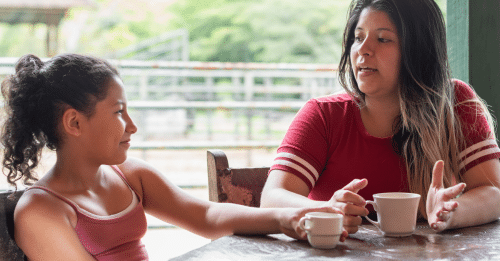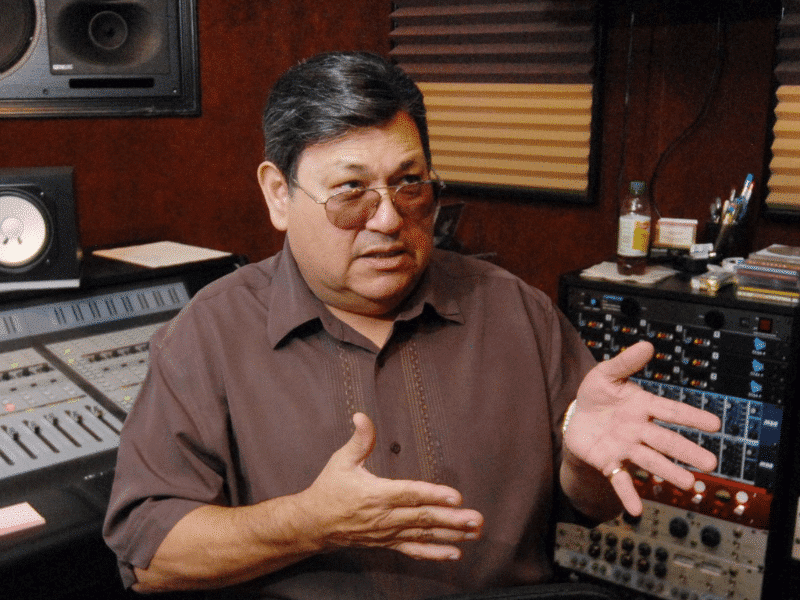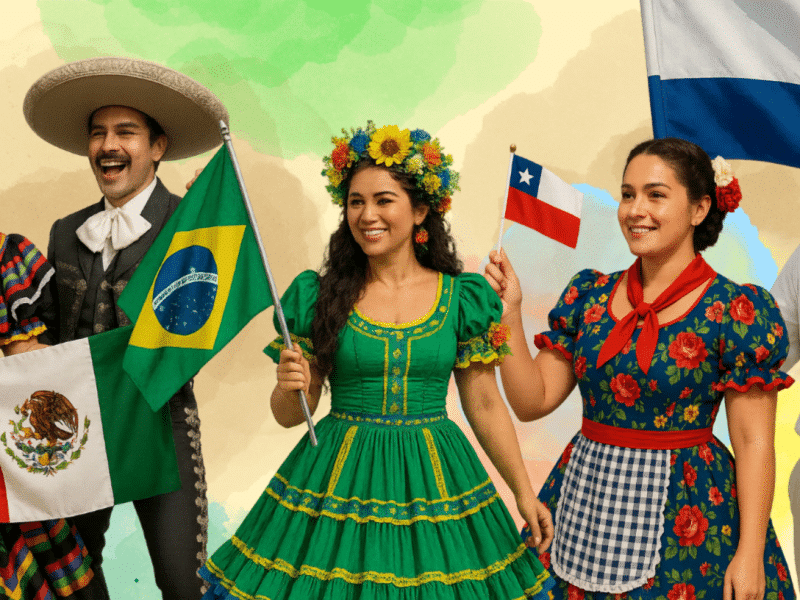Myth-Busting Latina Moms: We Did the Research
Growing up, we were all exposed to classic Latino mom phrases like “No comas aguacate si estás enojado.” But how much of this health advice actually holds up?

Growing up, our mamas cared for us and kept us safe in any way they possibly could, from coming up with the strangest homemade remedies (that, of course, always worked…or did they?) to stern warnings for just about everything. Many of which we’ve carried on to adulthood, like not stepping descalzos on the floor to avoid catching a cold!
Now that we’re not kids anymore, all that got us wondering…why though? Where do these urban legends come from? And is there any scientific basis for any of it?
Here are 5 of the most commonly heard phrases Latina moms fervently believe, we put on our lab coats to figure out once and for all… are they fact or fiction?
“Te vas a torcer”
How many times did your mom tell you to cover your face when you go out from a warm place and into the cold, because if you didn’t, “te vas a torcer”? And if you dare question the validity of their statement, they always claim to know someone who’s had this happen to them. Facial paralysis is no joke, and the thought of having part of your face frozen in place from a sudden temperature change can be mortifying. But does this seemingly decades-long urban legend hold any water?
The verdict: Has some truth but no definitive causal connections.
The condition usually described is called Bell’s Palsy, described as temporary weakness or paralysis of the muscles on one side of the face, which is caused by an inflammation of the nerve that controls the muscles of the face. While the exact cause of the inflammation is still unknown, it’s believed to be related to a viral infection or an autoimmune disorder.
That being said, some studies have suggested that people who are under stress or experiencing illnesses such as upper respiratory infections may be more likely to develop Bell’s palsy. There’s also some research indicating a correlation between temperature changes and Bell’s Palsy; however, this is stll being studied, therefore not definitively clear whether the temperature changes can cause Bell’s Palsy, as research papers continue to find.
So, in this case, while the jury is still out from the scientific community, facial paralysis and temperature changes may have some relationship — We suppose it can’t hurt to listen to our mamas and cover up! It’ll also make them feel better knowing you’re taking precautions for yourself.
“Todavía está bueno”
As you take out a loaf of bread with a spot of mold growing on the corner, your mom might cut the moldy piece, throw it in the trash, and say, “todavía está bueno.” We know Latina moms will do their best to make the most out of each and every ingredient in their pantry and not let anything go to waste. But when something is starting to go bad, is it still safe to eat if you just remove the ugly part?
The verdict: Depends on the type of food item.
Generally, if the food is perishable, such as bread or dairy products, it’s best to get rid of it as the mold and the bacteria that causes it may have already spread throughout the food.
For some fruits and vegetables, if they are overripe and showing softness or brown discoloration in some spots, those areas can be cut off, and the rest of it can still be eaten. But if it has a strong odor, tastes bad, or is growing even a tiny bit of mold or rot, it’s probably best not to test the digestive gods and throw it out becuase the bacteria or mold that caused the spoilage can quickly spread through the food. Even if the rotten part is cut off, harmful microorganisms may already have spread to other parts of it and could cause food poisoning.
If the food is a hard food, such as cheese or hard salami, it can usually be safely consumed after the mold has been removed because the bacteria aren’t likely to have gone very far. But at the end of the day, it’s probably a good rule of thumb to not mess around with spoiled food.
Also, it’s a good idea to instead focus on sustainable food practices rather than trying to salvage old groceries so that you don’t end up with spoiled food to begin with.
“Un bolillo para el susto”
After the 6.8 earthquake that happened on September 2022 in Mexico City, a guy made headlines for handing out pieces of bread, or “bolillos,” to people on the streets to help them relax after the awful scare (and lighten up the mood). An age-old antidote after a stressful event, what magical properties do bolillos have that make them a cure for the “susto?”
The verdict: Surprisingly true.
Eating can have a calming effect on the body after experiencing a bad scare or feeling stressed or anxious. This is because certain foods can release chemicals in the brain, such as serotonin and dopamine, that can promote feelings of relaxation and well-being.
Certain types of carbohydrates in particular, such as those found in starchy foods like pasta, bread, and potatoes, can boost the production of serotonin, a chemical that helps regulate mood and can promote feelings of calmness and relaxation. Eating a small serving of these foods can be comforting and help you feel more relaxed after a stressful event. The more you know, huh?
“Una Coca para la presión”
Some Latina moms will use Coke as a remedy for just about everything. Feeling tired? Have some coquita to lift yourself up. Your blood pressure is low? Pour yourself a glass, and you’ll feel better. Upset stomach? Mix in a little bit of limón. Is this go-to emergency cure effective, or just some placebo effect?
The verdict: True, though probably not the best advice.
It’s pretty simple, Coca-Cola and other similar caffeinated drinks may help to temporarily increase blood pressure in people with low blood pressure. Caffeine is a stimulant that can cause the body’s blood vessels to constrict, which can lead to an increase in blood pressure. So, any caffeinated drink may have the same effect: coffee, energy drinks, or tea.
Though it’s certainly not to be used often or as an actual cure, given the fact that consuming it regularly could cause many health problems, including high blood pressure, it may actually help alleviate low blood pressure symptoms like dizziness and weakness temporarily if you need a pick-me-up on the spot and don’t have immediate access to any medication.
“No comas aguacate si estás enojado”
One of the more urban-legend-y ones, in some households, you were strictly warned against having a bite of avocado after a “coraje.” Why you would want to eat avocado while mad in the first place, we honestly don’t know. But what is it about avocados that would allegedly be so harmful to you if eaten while you’re upset about something?
The verdict: It’s totally false.
We could not find a single shred of evidence to support this claim, even though we were really keen on finding out where it came from. There’s nothing to suggest that eating avocado while stressed or angry would have any negative effect on your body. That being said, stress and anxiety are known to cause cramps and stomachaches for some people, so it wouldn’t be surprising if eating literally anything would just upset your stomach more. So, avocado is definitely not the culprit. Let nobody keep you away from that guacamole! Maybe wait for a bit, though.




